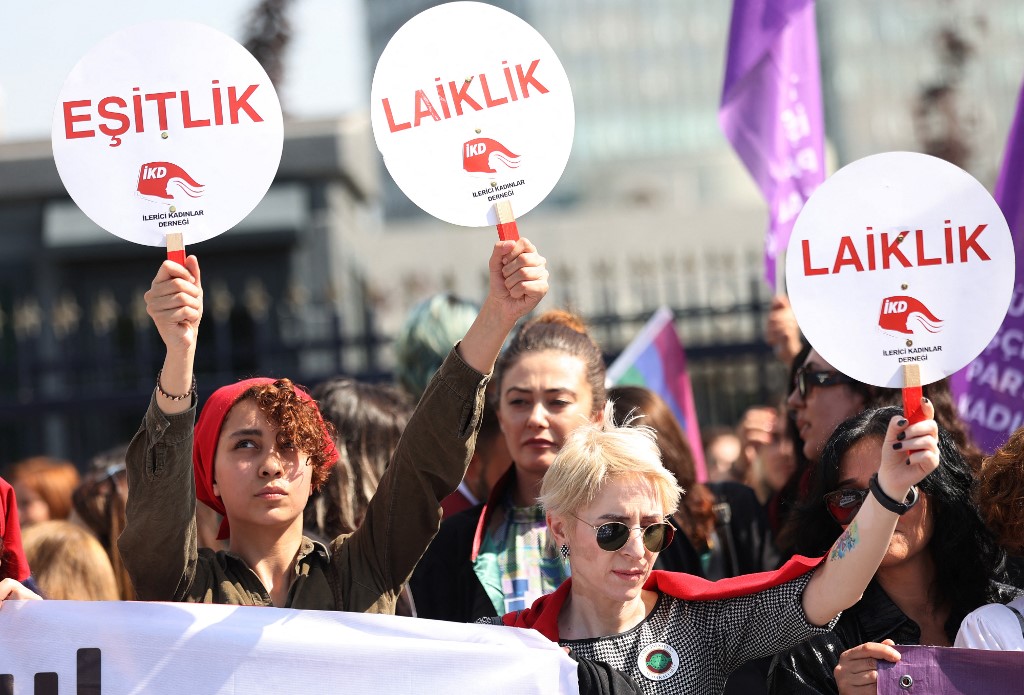Turkey has been ranked 124th out of 146 countries with respect to inequalities between men and women, according to the World Economic Forum’s (WEF) Global Gender Gap Report 2022, Turkish media reported on Wednesday.
The framework of the index includes four categories: economic participation and opportunity, educational attainment, health and survival and political empowerment.
In the category of economic participation and opportunity, Turkey has a ranking of 134, a ranking of 101 in the category of educational attainment, 99 in the category of health and survival and 112 in the category of political empowerment.
The global gender gap in 2022 is 68.1 percent closed, with the overall gender parity score rising from 67.9 percent in 2021 to 68.1 percent in 2022, the report said, adding that it would take another 132 years for the gap between men and women across the world to disappear.
In Central Asia, overall progress in closing the gender gap is stagnant at 69.1 percent, unchanged from the last edition, the index said, with Moldova (78.8 percent), Belarus (75 percent) and Georgia (73.1 percent) being the three top-ranked countries in the region, while Azerbaijan (68.7 percent), Tajikistan (66.3 percent) and Turkey (63.9 percent) ranked at the bottom.
Iceland topped the ranking for the 12th year in a row, once again being named the most gender equal country, having closed more than 90 percent of its gender gap, according to the report, while Pakistan and Afghanistan were at the bottom of the index as the 145th and 146th countries, respectively.
President Recep Tayyip Erdoğan’s Justice and Development Party (AKP) government, which has its roots in political Islam and came to power in 2002, has long been accused by critics, activists and human rights advocates of seeking to erode the country’s secular principles and limit the civil liberties of women. He has commented on a variety of topics related to women in Turkey, including their role in society and whether or not they should have children.
Femicides and violence against women are also serious problems in Turkey, where women are killed, raped or beaten every day. Many critics say the main reason behind the situation is the policies of the AKP government, which protects violent and abusive men by granting them impunity.
Turkey was ranked 105th in the same report’s 2006 version.

